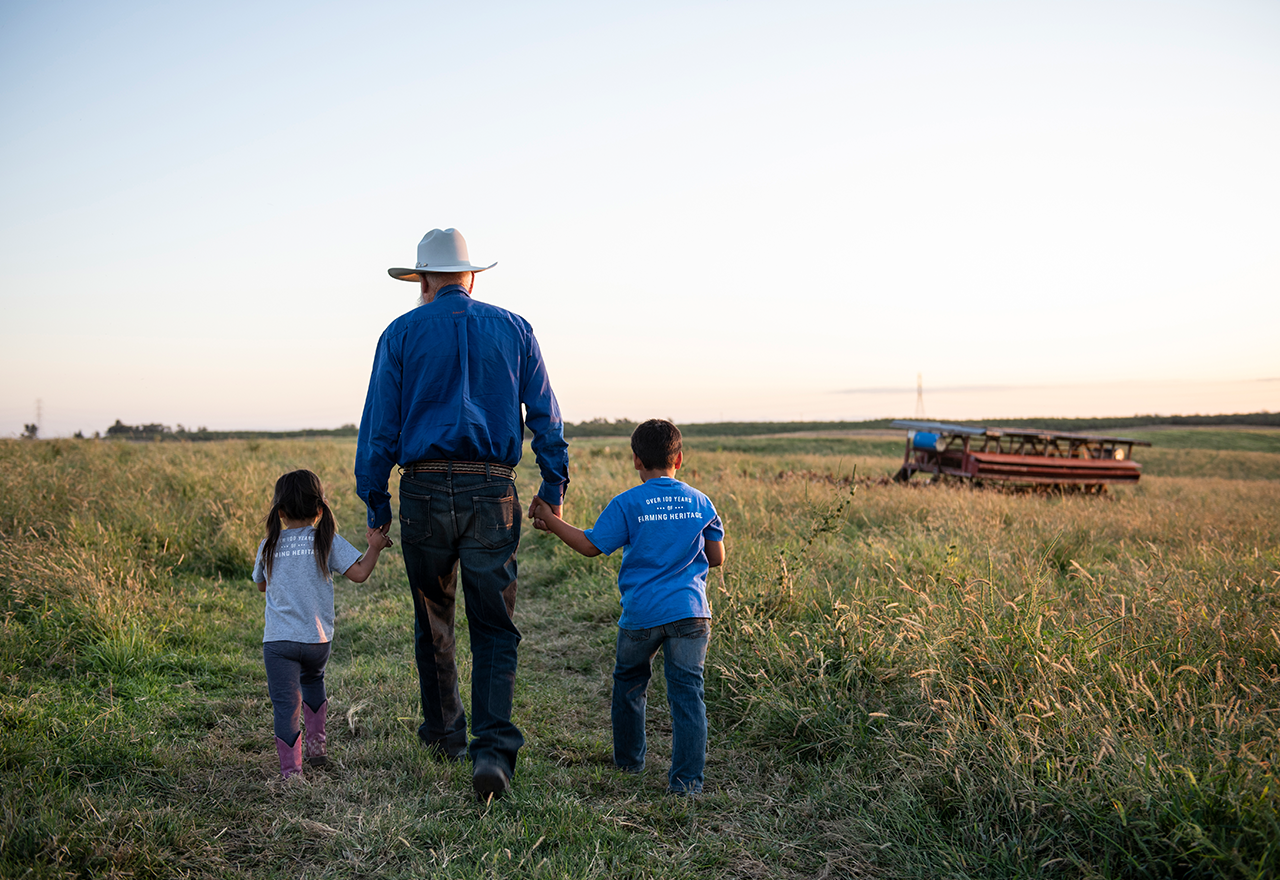The diagnostic story of California Cloverleaf Farms Dairy
By Rachel Zegerius
California Cloverleaf Farms is the latest casualty in organic dairy. Crushed by the onslaught of industrialized producers, Ward and Rosie Burroughs, with son Zeb and daughter-in-law Meridith, recently closed the doors on their 550-cow operation in the San Joaquin Valley.
The loss of such an iconic organic dairy is exceptionally sour. Ward’s grandfather, Ben Burroughs, delivered milk by horse and wagon with his brothers in California’s East Bay in 1906. For more than 100 years since, the Burroughs family has committed their lives to building a strong organic dairy industry, not only for themselves, but for the entire community.
Certified in 2004, Cloverleaf personified the bedrock principles of organic agriculture: continuous improvement of the soil microbiome, grass-fed cows on pasture year-round, replacement animals born and raised on the farm, hedgerows for pollinators, French drains for surface waters, corridors for wildlife, and more.
“The organic dairy industry had the best supply management system ever figured,” says Ward. “You had to graze cows to produce organic milk. But for some people, that wasn’t good enough for the bottom line.”
Conventional milk producers elbowed their way into the organic dairy marketplace, quickly increasing milk supplies by transitioning many conventional heifers to organic production. This erosion of authentic organic dairy was enabled by certifiers, inspectors, and the USDA National Organic Program’s failure to enforce the mandatory grazing requirement and adopt and enforce a new Origin of Livestock Rule. The resulting glut of cheap “organic” milk in the market, coupled with a decade-long crisis of destructive competition, has had dire consequences.
“It all comes down to this: If the pay price is not high enough to cover the costs of farming, you’re not going to survive,” says Ward. The pay price is the amount of money a farmer will receive per unit of fluid milk and is determined by a complex system of regulatory and market drivers.
Industrial farming impacts the complicated mechanism by which pay prices are determined. Rosie explains, “Dairy farmers are price-takers, not price-setters. The price farmers receive is not based on what it actually costs to produce the milk.”
Staunchly committed, the Burroughs fought to survive in the increasingly consolidated marketplace by direct marketing their own milk and cheese to consumers. But deep roots and dedication did not guarantee Burroughs Family Farm milk a spot on the grocery store shelf.
Contracts with stores, distributors, handlers, and processors are inaccessible, monopolized by industrial players who benefit from decreased production costs and economies of scale. Tanker loads of milk afford them stronger negotiating positions. At the same time, processors who once collected milk directly from farms are dropping contracts with longtime local, organic farm families.
With dwindling connections among farmers and processors, more milk is handled by brokers. A broker drives the pay price down even further. Their message: with an oversupply of milk, they can’t afford to pay more.
This trend started in the West more than a decade ago and continues to devastate farm families in New England. “Today many dairy farmers have no place to go with their milk,” explains Rosie. “With no choice, they get paid only what the handler wants to pay. Many others will go out of business without a contract.”
As they pick up the pieces and move on, the Burroughs are not alone. Over the years, they have seen many dairies go out of business. This year, at least three high-quality western organic dairies have closed their doors. Since 2009, 20 organic dairy families have closed in the San Joaquin Valley. Dairy farmers continue to lose their homes, their land, and their family heritage at an alarming rate. And, as consumers, we have diminished access to the highest-quality, grass-based organic products at the grocery store.
“As heartbreaking and disappointing as it was to close Cloverleaf — I would not change what we did, because we did what we knew was the right thing, and we did it for the right reasons,” says Rosie. “I value the experience, and I am really proud of our family, our children, the effort to market our own milk, the dedication, perseverance, and determination. We are honored to farm organically.”


